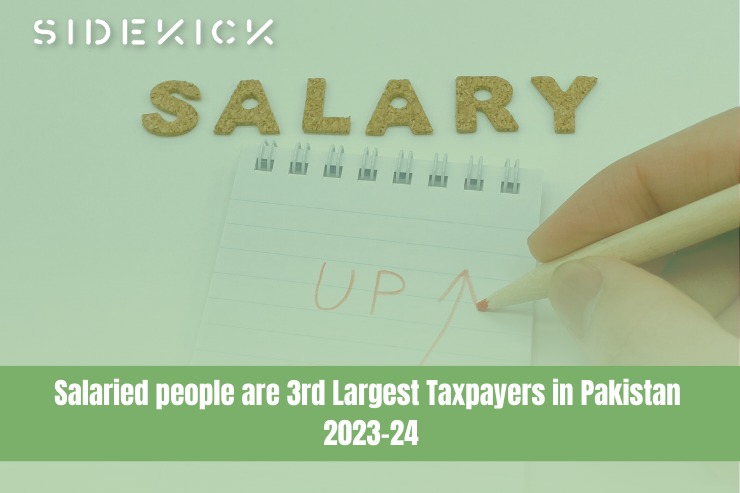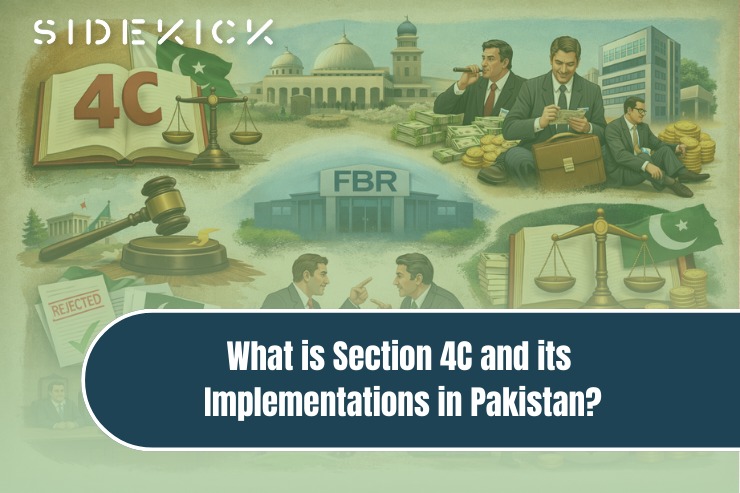Salaried employees are among Pakistan’s prime taxpayers. In fiscal year 2023-2024, their contribution placed them third among the country’s largest taxpayer groups, indicating their importance in helping the country’s economy. This article addresses the causes and consequences of this heavy tax duty and the challenges the salaried class faces.
The Increasing Tax Burden on Salaried Individuals
Salaried class individuals including, professionals, government employees, and white-collar workers have been the bearers of income tax collection in Pakistan for decades. In fiscal year 2023-2024, their contribution amounted to nearly 15% of the overall total direct tax collection.
This heavy contribution is mainly because of Pakistan’s progressive tax system, which deducts income tax at the source. The employers are compelled to withhold taxes from salaries, thus ensuring compliance and reducing tax evasion. This system places salaried individuals in a unique position because their taxes are collected more efficiently than other segments like traders and small businesses, where tax compliance remains low.
Why Salaried People Bear a Larger Burden
- Higher Compliance: If you are a salaried employee, you can’t avoid paying tax altogether since your income tax is already deducted at the source. This contrasts with the other sectors where informal economies and underreporting are relevant.
- Progressive Tax Rates: In Pakistan, higher income tax slabs are charged to individuals earning at a higher threshold. The tax rates of higher slabs have been rising in the past few years, and now, salaried middle and upper middle-class individuals are being burdened further.
- Limited Tax Base: Despite its efforts, the government has been unable to expand the tax net; only about 2.6 million filed income tax returns in a country with more than 240 million people. This means that salaried people, who already pay taxes upfront, bear the cost of revenue generation.
Impact on Salaried Taxpayers
The inflation rate is also adding to the financial burden on salaried taxpayers. Food, fuel, and housing have become costlier, reducing disposable income. With limited tax relief and indirect taxes like GST, many salaried workers face stagnant wages and higher living costs.
Further, deductions for provident funds and other mandatory contributions reduce take-home pay to the bare minimum, leaving salaried employees with little or no savings or investments.
Government Measures and Recommendations
Recognizing the burden on salaried taxpayers, the government has introduced certain tax relief measures in recent budgets, including:
- Revised Tax Brackets: Marginal relief for lower-income salaried individuals.
- Increased Tax Rebates: For investments in pension funds and insurance schemes.
- Allowances and Exemptions: For certain categories like education and medical expenses.
These measures are, however, usually inadequate. Experts suggest broadening the base of taxes by targeting untapped sectors and informal businesses. Similarly, simplifying tax filing procedures and reducing corruption in the Federal Board of Revenue is essential in ensuring an equitable distribution of taxes.
Simplify Your Tax Filing with Sidekick
Filing taxes can be difficult and complex, especially if you are salaried, dealing with many tax codes and regulation details. That’s where Sidekick comes in! It is your competent companion in easing the burden of tax filing with personalized assistance, automated calculations, and expert guidance designed to ensure precision and compliance.
Whether it’s keeping track of all the deductible expenses, organizing the documents for tax filing, or maximizing your returns, Sidekick takes the hassle out of tax season, saving you time and money. Never let tax filing stress you out again; let Sidekick do it for you.
Conclusion
Systemic reforms are needed in Pakistan to mitigate the disproportionately heavy tax burden on salaried people. Undocumented sectors must be brought into a tax net, a hand must be held to encourage voluntary compliance, and a digital means of tax collection must be promoted.
Besides, despite being aware of the difficulties organized taxpayers face, the government must ensure that the tax revenues it collects are being expended on ameliorating public services such as education, healthcare, and infrastructure. Being more transparent and better governed improves this in the eyes of the taxpayers and increases future compliance.







